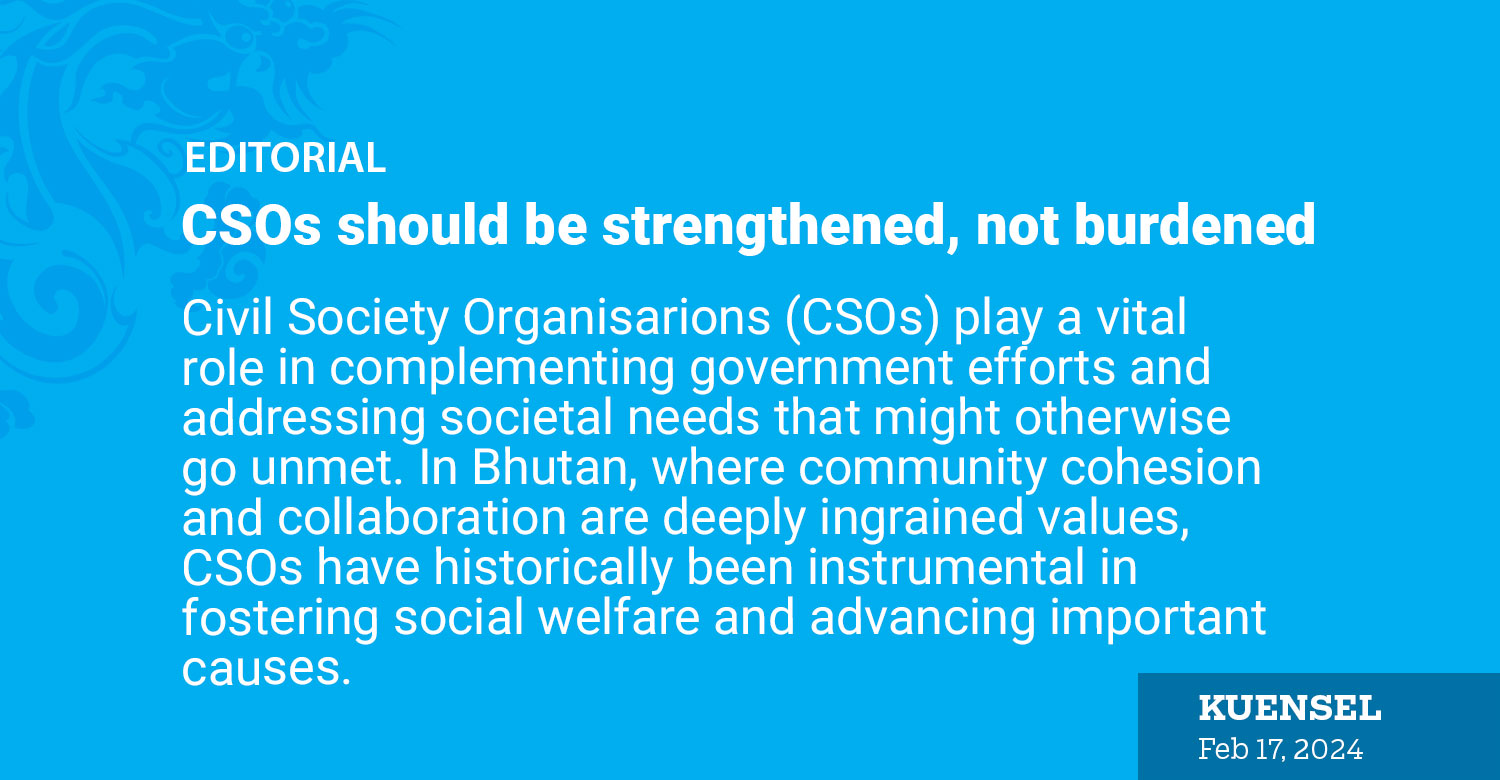Civil Society Organisarions (CSOs) play a vital role in complementing government efforts and addressing societal needs that might otherwise go unmet. In Bhutan, where community cohesion and collaboration are deeply ingrained values, CSOs have historically been instrumental in fostering social welfare and advancing important causes. Recent developments, however, are seen as posing a significant challenge to the sustainability and effectiveness of these organisations.
The introduction of the endowment fund requirement by the CSO Authority (CSOA) marks a well-intentioned effort to enhance the visibility and stability of CSOs. However, the burden imposed by this requirement, is seen as threatening to undermine the very fabric of Bhutan’s vibrant third sector.
At a time when most of the 51 CSOs are functioning on a shoestring budget, often finding it an uphill task to meet operational cost, the requirement to set an endowment fund of Nu 3M for PBOs and Nu 1.5 for MBOs, besides the fund reserve for operation has become a burden on CSOs. While the intent behind the endowment fund is to ensure financial sustainability, the reality is that many CSOs are struggling to meet even their basic operational costs. Forcing them to divert substantial funds towards the endowment could result in operational paralysis or, worse, closure.
CSOs are not profit-driven entities. Their primary focus is on serving communities and advancing social causes. They play a vital role in the gaps between officialdom and the business sector. Our CSOs are attending to a lot of issues starting from animal welfare, to women and youth issues, stroke and cancer patients, children with special needs, media, transparency and accountability and civic education. These are current demands, not mere issues.
Going strictly by the endowment fund requirement, we could see some deregistered soon. And there will be new ones with deep pockets. CSOs like the Bhutan Cancer Society and Stroke Foundation are filling in important gaps. Cancer and stroke are two major issues in Bhutan, a huge burden to the free health care. While the government can focus on treatment, the CSOs could focus on education, prevention and even post treatment care. Their activities encourage civic engagement in critical issues. Their contribution cannot be measured by the size of the fund.
Besides, CSOs are not only critical to providing essential services but also for fostering a culture of civic engagement, empowerment, and accountability. They serve as watchdogs, advocates, and service providers, bridging gaps in government services and amplifying the voices of marginalised communities. By stifling their financial capacity, we risk silencing these vital voices and depriving our society of their invaluable contributions.
CSOs are expected to play an important role in achieving the national goals and key performance indicators highlighted in the 13th Plan. In almost every goal, short or long term, CSOs are also given the mandate to achieve the goals of a healthy, prosperous and secure Bhutan.
Heads of CSOs are mulling over seeking government intervention. They should and in light of the current economic realities, the endowment fund requirement should be reassessed. Rather than imposing uniform financial burdens, a more nuanced approach could be adopted, taking into account the diverse capacities and needs of different organisations. This could involve exploring alternative funding mechanisms, such as grants, subsidies, or collaborative partnerships, that alleviate financial pressure while still ensuring long-term sustainability.


